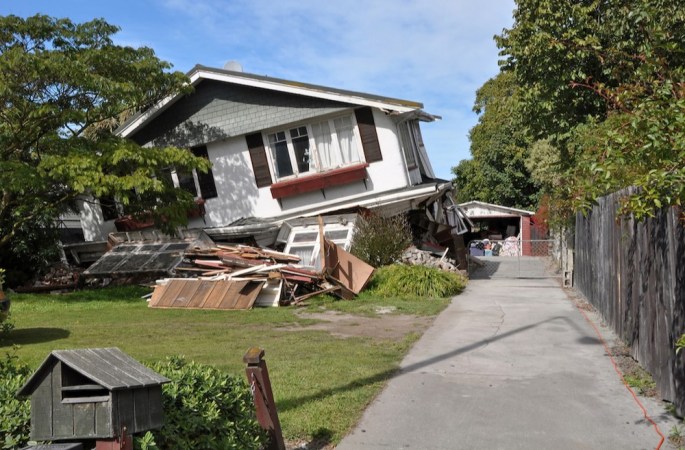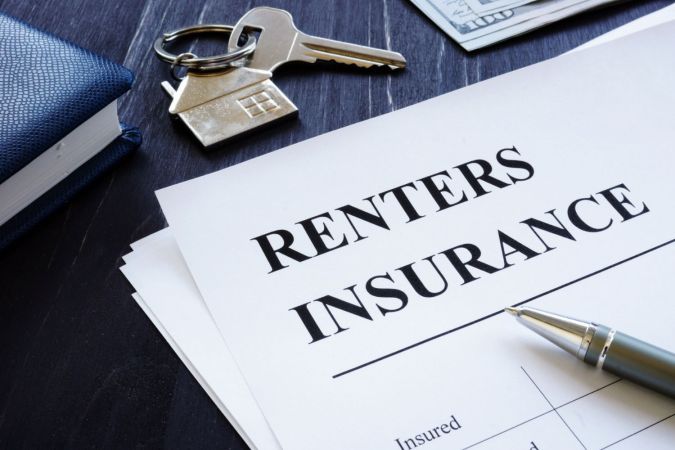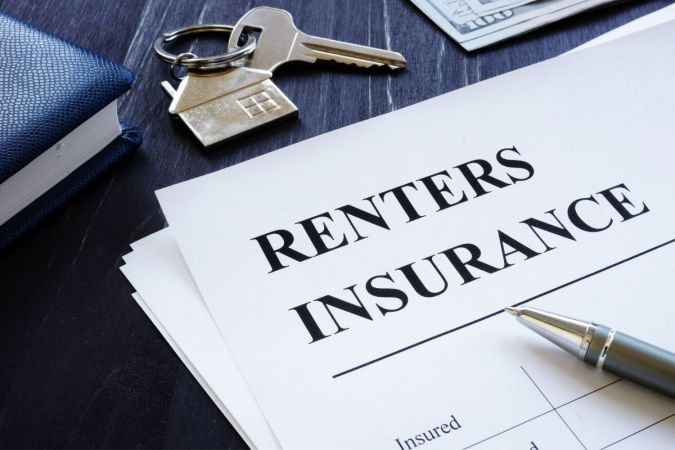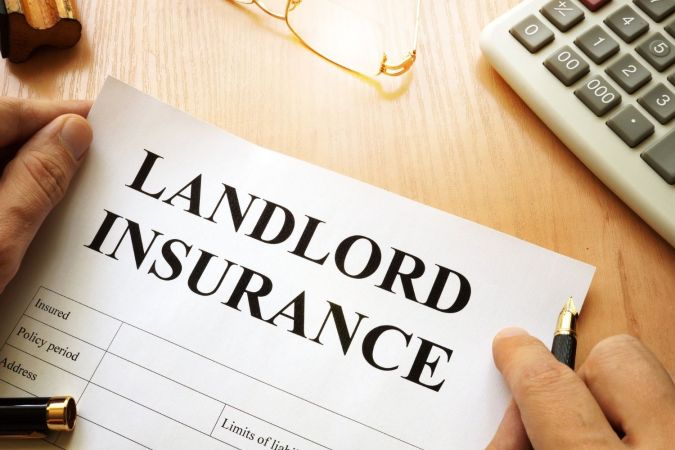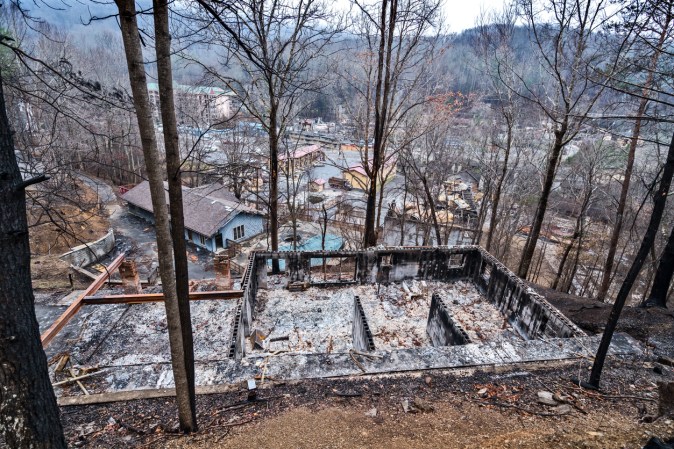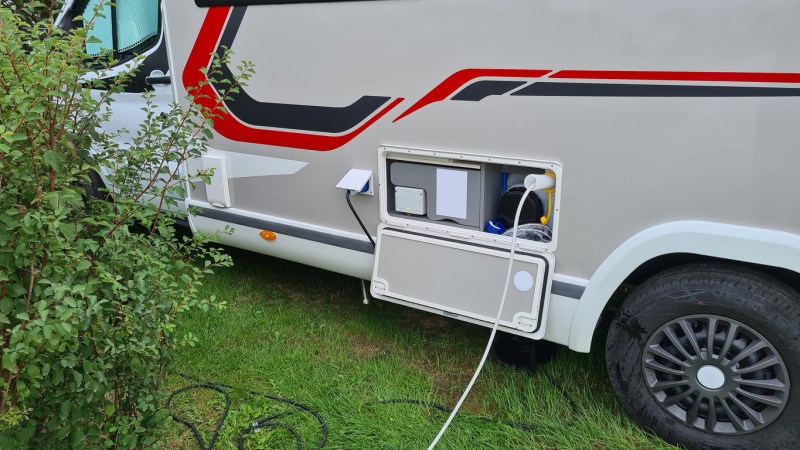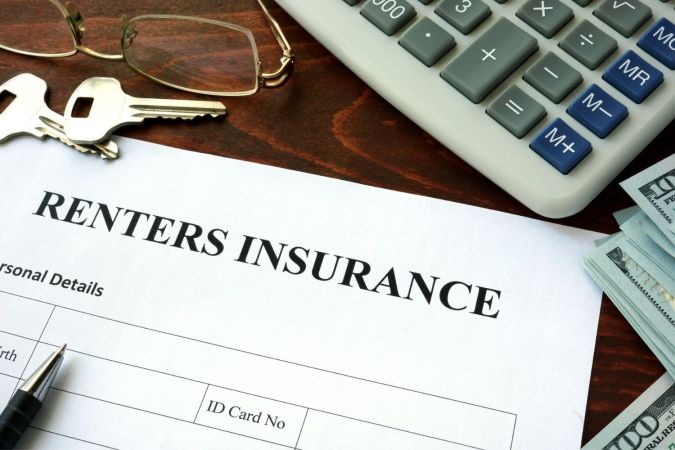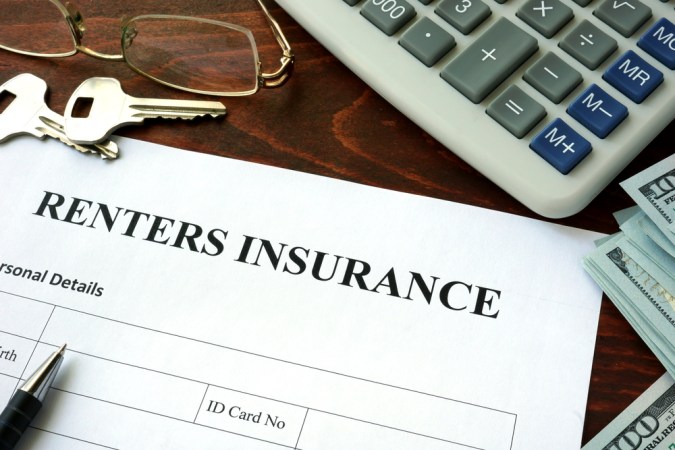We may earn revenue from the products available on this page and participate in affiliate programs. Learn More ›
Q: I just moved to an area that sees a lot of earthquake activity. My landlord mentioned that a lot of their tenants buy earthquake insurance because regular renters insurance won’t cover this. Does renters insurance cover earthquakes, and is apartment earthquake insurance a good idea?
A: When renters in earthquake-prone areas get a renters insurance policy, they may ask, “Does renters insurance cover earthquakes?” Typically, a basic renters insurance policy won’t protect a renter’s belongings should they be damaged due to an earthquake. If an earthquake shakes a renter’s apartment and knocks their 60-inch TV to the ground, the renter will likely have to pay out of pocket to replace the TV.
While a standard renters policy usually won’t cover earthquake damage, renters can still get earthquake coverage through a separate policy or addition to their existing policy. Renters can contact the best earthquake insurance companies to get a quote on coverage for their property.
Most renters insurance policies do not cover damage caused by earthquakes.
Some renters are surprised to learn that their landlord’s insurance doesn’t cover them or their belongings. A landlord’s policy typically only covers their own liability and the physical structure of the rental property. That means a renter without renters insurance could be on the hook if an accident damages their own belongings or they are found liable for injuries or damage to another person or their property.
Renters insurance covers the tenant’s belongings and provides personal liability coverage. Standard renters insurance policies also help cover additional living expenses if the renter has to temporarily relocate while repairs are made to their home following a covered event.
However, renters insurance usually doesn’t cover certain hazards such as earthquakes or floods. For a renter to receive compensation if an earthquake damaged their renter’s belongings, they would need to have an earthquake insurance policy in place.
Renters who live in a high-risk area can add earthquake coverage to their renters policy for an additional cost.
The good news for renters who live in areas that see a lot of earthquake activity is they can often find renters insurance with earthquake coverage. Renters in coastal regions of California and Oregon or southeast Missouri can ask their renters insurance company if earthquake coverage is available as an endorsement or add-on to their existing policy.
It’s important to note that adding earthquake coverage to a renters insurance policy will more than likely increase the renter’s premiums. Additionally, renters living in less earthquake-prone areas, such as the upper Midwest region, may have fewer coverage options than those living in high-risk areas.

Alternatively, renters can look into purchasing a stand-alone renters earthquake insurance policy.
Adding earthquake coverage to an existing renters insurance policy may not be the right fit for some renters. Alternatively, some renters insurance companies may not offer earthquake coverage for their renters policies. In this case, renters in high-risk areas can usually look for a stand-alone earthquake renters policy.
The best earthquake renters insurance companies make it easy to understand what is and isn’t covered by the earthquake-specific policy. Just like when choosing the right renters insurance policy, renters may want to talk to an earthquake insurance agent to get a better idea of what a policy includes. In addition to carefully reading the insurance policy, renters can talk with an agent directly to help them get answers to their questions.
Earthquake insurance for renters offers personal property coverage to help pay to repair or replace items damaged by seismic activity.
Earthquake insurance for renters has similar coverage types as a standard renters insurance policy, but it specifically covers earthquake damage. Like basic renters insurance, earthquake coverage pays to repair or replace the renter’s belongings after an earthquake, less the deductible. That means if an earthquake damages a renter’s furniture, clothes, or other goods, their earthquake insurance could help cover the cost, up to the policy limits.
However, it’s common for earthquake insurance to have coverage limits on certain items, just like a standard renters insurance policy. These are typically high-value items, such as computers, sports equipment, electronics, or jewelry. For example, earthquake insurance may limit coverage of electronics to $3,000. If the damage to electronics is over $3,000, the renter will likely have to cover the remaining costs out of pocket. Renters can look into scheduled coverage (listing every item they’re covering along with its value) for certain high-value items to ensure that they will be adequately covered if they’re damaged or destroyed by an earthquake.

Additionally, renters earthquake insurance provides loss of use coverage, which helps pay for additional living expenses incurred if the renter is required to evacuate or temporarily relocate.
One of the biggest risks of living in an earthquake-prone area is the possibility of significant damage to apartments or other rental buildings. A large earthquake could damage foundations or cause dangerous conditions like gas leaks in the building. Landlords may carry insurance to cover the repairs to a building if it’s damaged by an earthquake. However, renters may find themselves temporarily without a place to live while repairs are made.
One of the biggest benefits of earthquake insurance for renters is additional living expenses coverage. Also called loss of use coverage, this component helps cover the cost of alternative lodging and other common living expenses above and beyond the renter’s usual living expenses if their home is uninhabitable after an earthquake. This coverage could help pay for a short-term rental, meals out, and additional travel expenses.
Renters may also opt for breakables coverage and debris removal—both of which are not typically covered by a basic earthquake policy.
In addition to covering damage caused by seismic activity, earthquake insurance policies typically offer specific coverage for earthquake-related hazards. In particular, renters can often choose to add coverage for breakables and debris removal. This coverage is often available as an add-on, which will likely increase the earthquake insurance cost.
Basic earthquake coverage generally excludes coverage for highly breakable objects, such as glassware or pottery. Breakables coverage, however, includes these fragile items in the policy. Debris removal is another add-on for earthquake insurance. This coverage helps pay to remove debris from a rental property. As an example, if an earthquake caused several pieces of furniture and electronics to break into pieces, the renter’s debris removal coverage could help cover the cost to clean up and dispose of the debris.
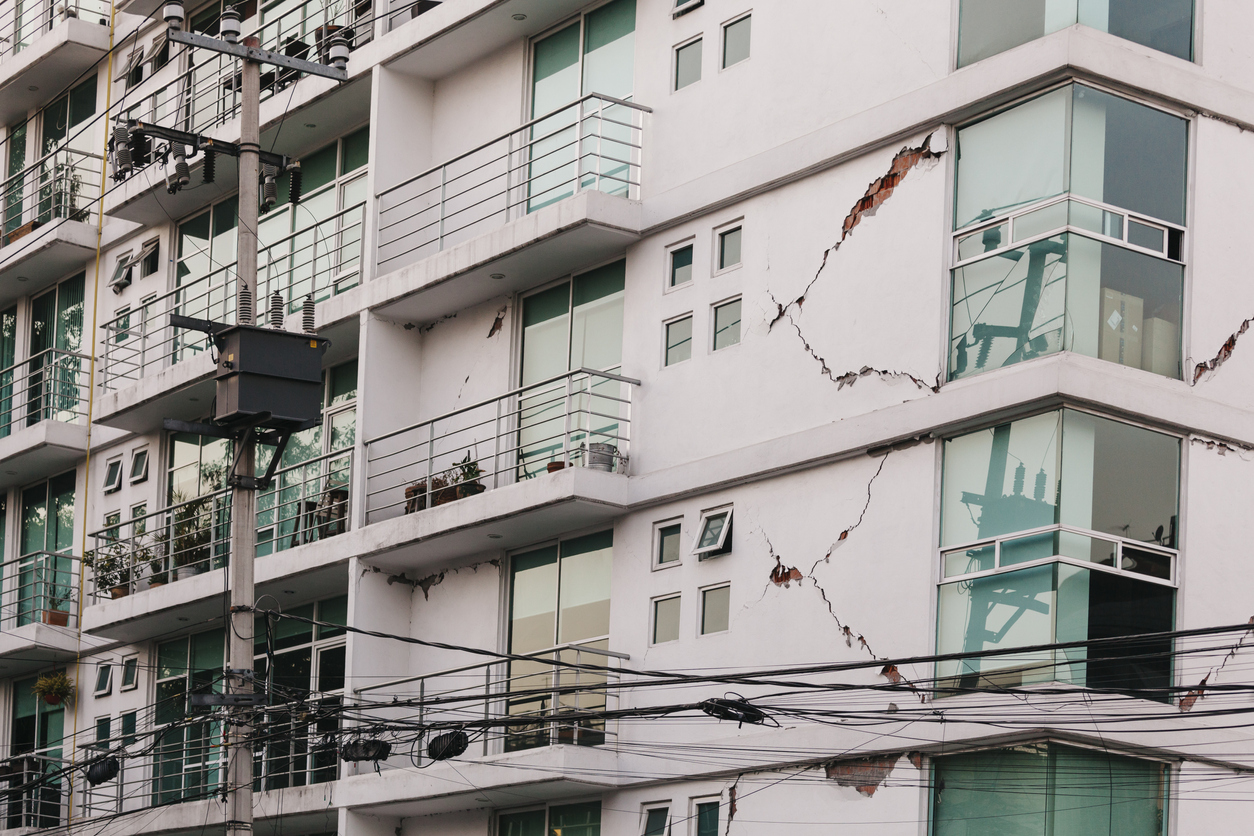
Some earthquake insurance companies cover damage caused by related events, such as sinkholes and landslides, while others may not.
Large earthquakes can cause related natural disasters after the initial quake. Earth movements, such as landslides and sinkholes, are some of the more common types of aftereffects of an earthquake.
Depending on the type of earthquake coverage a renter has, they may or may not be covered for landslides and sinkholes after an earthquake. Renters who live in areas where earth movements are possible after an earthquake may want to talk to their insurance company about earth movement coverage. As always, it’s recommended that renters read their earthquake coverage closely so they know if they have earth movement coverage.
Many policies will cover damage caused by aftershocks that occur within a certain time frame after the initial earthquake.
It’s common to have several smaller earthquakes after an initial, larger earthquake. Even smaller aftershocks could cause damage to a renter’s property. Luckily, a lot of earthquake insurance policies for renters will cover damage caused by aftershocks. Generally, this time frame will be a few days to about a week after the initial earthquake hits, though the exact time frame will depend on the insurance company.
This time period also gives renters a chance to look for hidden damage after an earthquake. It might be difficult to assess all of the damage to a renter’s property right after an earthquake, so this additional time lets them look for damage that initially went unnoticed.
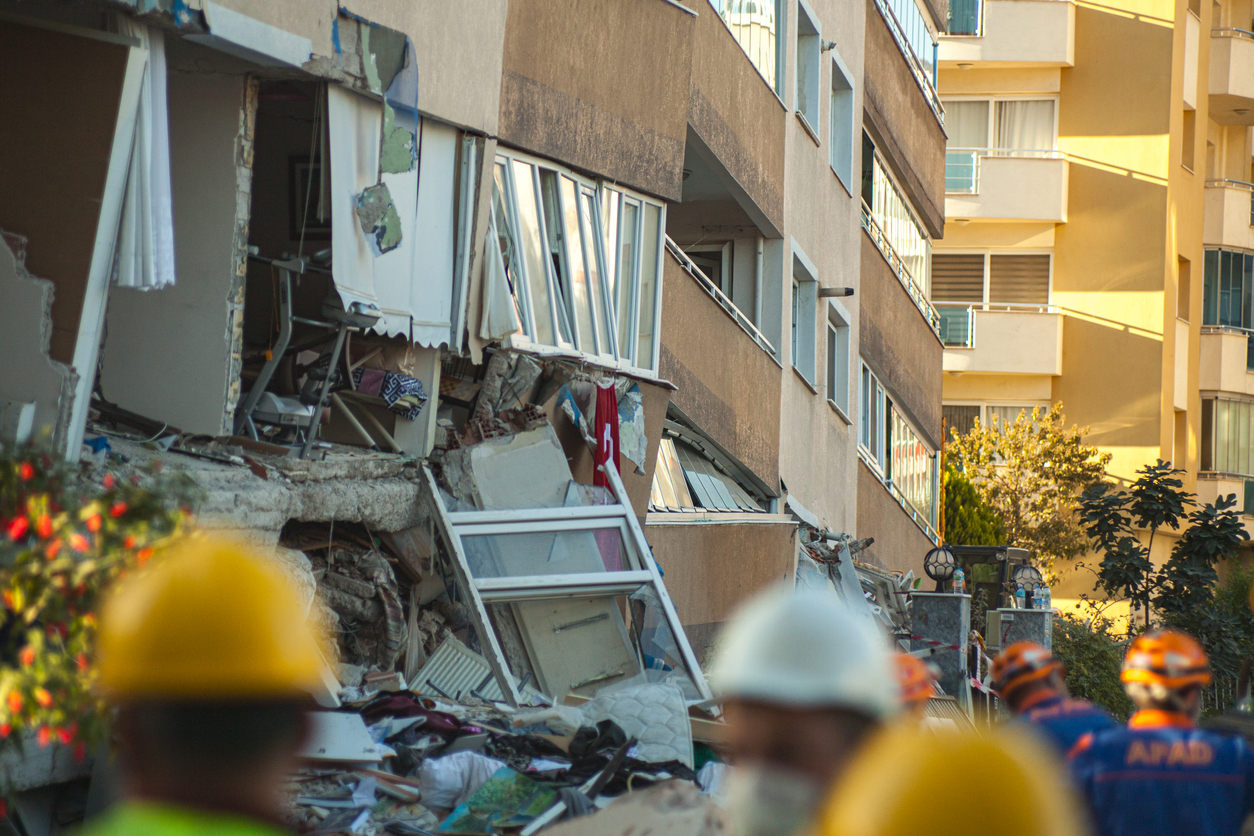
Earthquake insurance doesn’t cover flooding and fires, even if they are caused by seismic activity.
In addition to landslides and other earth movements, earthquakes can cause secondary damage and disasters. Two of the most common perils are flooding and fires. Earthquakes may disrupt bodies of water and cause a flood, or even a tsunami. Likewise, an earthquake may disturb power lines or flammable utilities like natural gas and cause a fire.
An earthquake insurance policy for renters doesn’t cover flooding caused by earthquakes or otherwise. Renters generally have to purchase a separate flood insurance policy to cover water damage from floods.
Earthquake insurance also won’t cover damage from a fire started by an earthquake. However, that doesn’t mean renters are left on their own. Earthquake insurance typically doesn’t cover fire damage because it’s covered by the standard renters insurance policy. If an earthquake causes damage and sparks a fire, the renter might be able to file one claim for both damages so long as their policies are with the same insurance company.
Damages to the home’s structure are covered by the landlord’s earthquake insurance policy.
As a renter, a tenant doesn’t own the physical structure in which they live. That means they’re generally not responsible for repairing the structure after an incident like an earthquake. Instead, the landlord, as the property owner, typically has the responsibility to take care of the physical aspects of the rental. That means landlords in areas prone to earthquakes may want to carry earthquake coverage for their rental properties.
Some landlords require renters insurance for all of their tenants, however. Their landlord insurance will still cover the physical structure, but the renter’s insurance policy will protect the renter’s belongings and provide liability coverage.
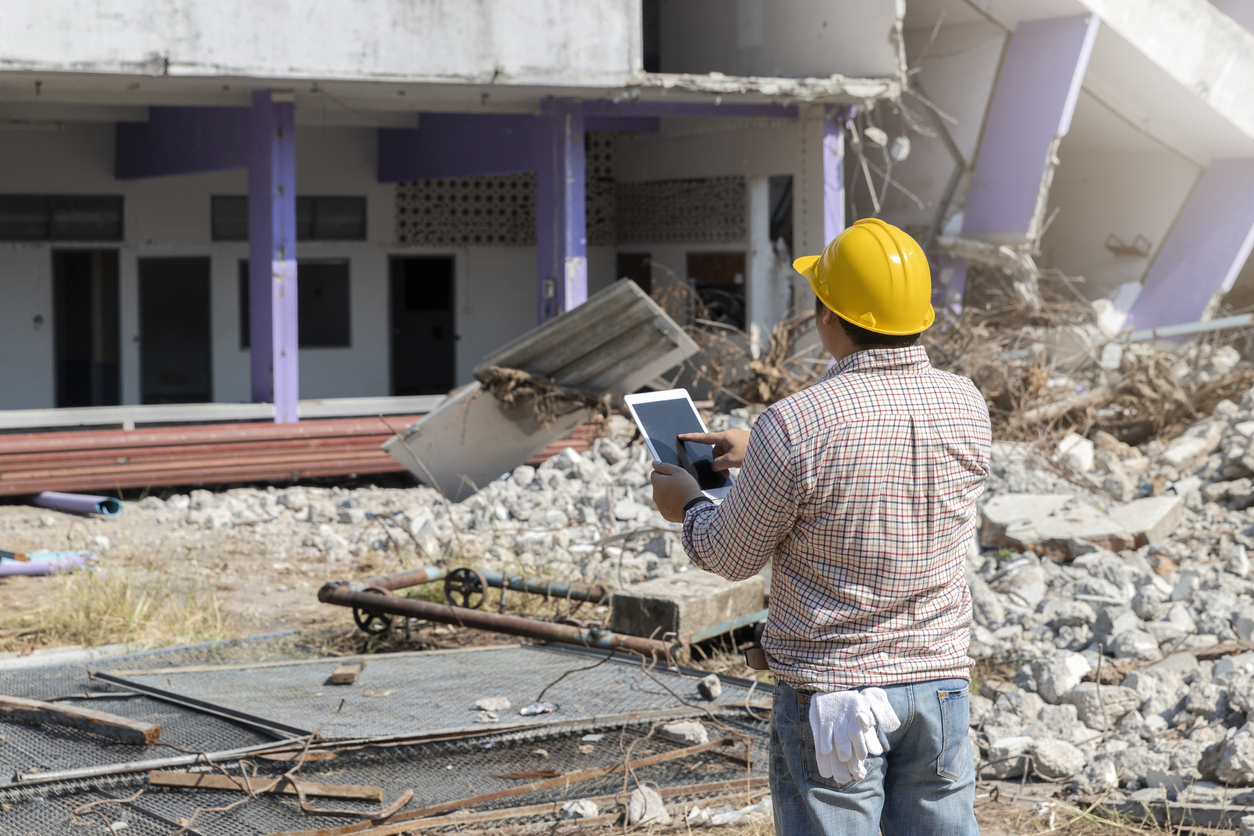
Earthquake insurance for renters is a relatively affordable type of coverage, making it a good choice for renters living in areas at a high risk of earthquake activity.
Renters in areas at high risk for earthquake activity might wonder, “Is earthquake insurance expensive for renters?” While earthquake insurance for homeowners can be pricey, earthquake coverage for renters is generally offered at a relatively low cost. Renters insurance companies don’t have to protect the physical structure of a home, which is often the most expensive aspect of earthquake damage. Like most insurance products, earthquake insurance requires renters to pay an earthquake insurance deductible before the insurance company will pay a claim. Renters are encouraged to shop around before choosing an earthquake policy to find the best coverage and price for their situation.
For example, renters living in high-risk areas of California can request an earthquake insurance quote from each of the best renters insurance companies in California. Then, they can compare quotes to find an earthquake insurance deductible, premium, and coverage amount that works for them.


